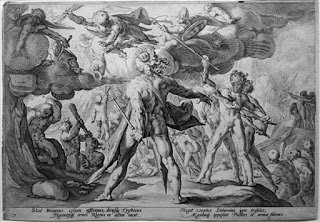| Online: | |
| Visits: | |
| Stories: |

| Story Views | |
| Now: | |
| Last Hour: | |
| Last 24 Hours: | |
| Total: | |
Ekphrasis (or, better, Ecphrasis): okay for UFO study?
Friday, August 28, 2015 5:37
% of readers think this story is Fact. Add your two cents.
An academic friend of mine has Facebook colleagues who like to evoke the mishmash of scholarship.
Rececntly, I had a back-and-forth with one of his Facebook “friends” about a passage in Ovid’s Metamorphoses.
It was the passage(s) about Arachne’s and Athena’s woven “carpet” contest.
The “friend” wrote this in reply to my plaint about his interpretation:
RC Kudos, as my English is probably not good enough to convey this: First of all, you seem to underestimate the level of sophistication of ancient literature, or ancient culture in general, (that's why it's called “classic”, by the way). You are simply proven wrong by the volumes of critical material accumulated over the ages of interpretation, beginning with the respective scholia already in Antiquity itself. Secondly, hermeneutics of the four-fold meaning (literal, historical, tropological & anagogical) are to be found both in the Christian and Jewish tradition, for example with Origenes, Augustinus etc, (the Jewish equivalent is called PaRDes and refers to the ancient interpretation of the Tora). And more specifically: Arakhne's carpet and the “Metamorphoses” as a whole are tied together by a compositional analogy in that they both use a compiliatory strategy that involves known and hitherto unknown/invented mythologems to an extent where both “texts” take on the air of a Proteic Metamorphosis. That fluency, if you like, & transformativeness distinguishes both from the “statuary” nature of Classical Augustean literature.Just like in paintings, for instance, where you can sometimes find miniatures of the entire picture hidden on the canvas somewhere – And from Pindar and Homer on it is possible to show that expressions around weaving/carpets etc. have been used for metapoetic discourse …
Okay, you get it; a lot of academic gobbledygook.
The academes also like to use the word ekphrasis or, more correctly, ecphrasis, for interpreting works of art (poetry, in particular) which means:
“Ekphrasis or ecphrasis, from the Greek description of a work of art, possibly imaginary, produced as a rhetorical exercise; often used in adjectival form, ekphrastic. A graphic, often dramatic, description of a visual work of art. In ancient times, it referred to a description of any thing, person, or experience.” [Wikipedia]
I prefer (for interpretations outside the world of academe and art), from the Oxford Dictionary: A lucid, self-contained explanation or description.
And here’s how all this applies to UFOs (or ufology):
While I keep harping on drilling down to determine all relevant facets of a UFO event or encounter (a significant “sighting”), I don’t mean to conjecture or add speculative accoutrements to the sighting.
That is, the sighting should be looked at in its overall, “superficial” aspect.
What is witnessed or attested to should be acknowledged on the face of it.
For example, in the Biblical Ezekiel sighting [Ezekiel 10], various hermeneutical interpretations have been applied, ascribing Ezekiel’s vision or experience to a symbolic array meant to provide a message to Hebrews and their enemies.
The “vision” – all by itself, unadorned and pristine as recounted by Ezekiel – has been muddied by askew interpretations.
What Ezekiel reported should be viewed just as it is. One can look for clues – drilling down into the report – as to what Ezekiel saw (just as one might do with the Zamora Socorro account, one of the best witness accounts of a UFO sighting).
Looking for esoteric hidden messages by Ezekiel is irrelevant.
Did he see what he saw? Or did Ezekiel create a wildly exotic “vision” to manipulate his people or their enemies?
I prefer to think Ezekiel reported what he actually saw, just as Eliseus did when he reported his father, Elias, “went up by a whirlwind into heaven” via “a fiery chariot and fiery horses” (and he saw him no more). [4 Kings 2:11]
While I’d like a scholarly, scientific look at UFO cases, especially some of the classic cases, I’d opt out of having anyone from academe getting involved.
They have a tendency to pontificate with abstruse nonsense that has nothing to do with actual content, preferring to incorporate their own misbegotten musings for what is, for all intents and purposes, a simple tale, told in poetic verse (sometimes) to make the story interesting to readers, not to imply subliminal messaging that their audience could not grasp even if they had the intellectual wherewithal to do so (as indicated by the RC answer to me at Facebook, seen above.
“Keep it simple” goes the current mantra, and that’s what we who are looking for an explanation of UFOs should do.
RR
http://ufocon.blogspot.com – The UFO Iconoclast(s)
Source: http://ufocon.blogspot.com/2015/08/ekphrasis-or-better-ecphrasis-okay-for.html




